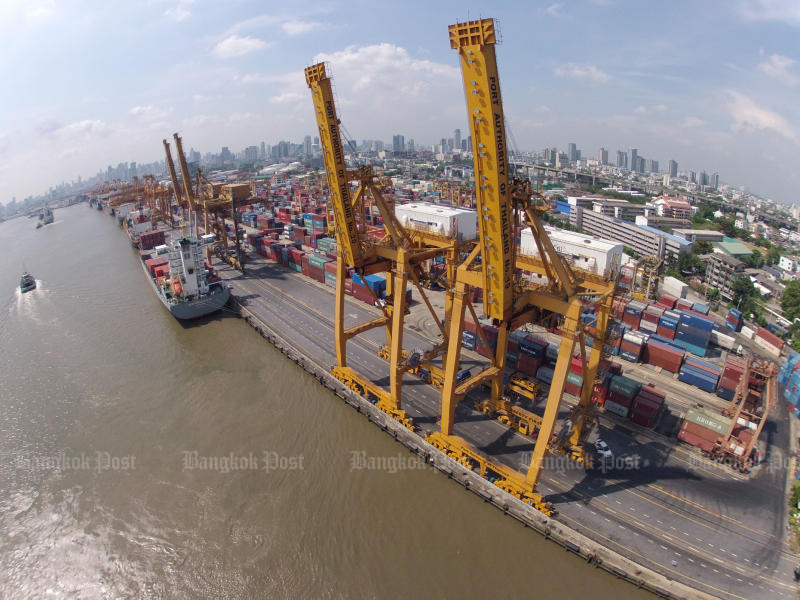
The use of free trade agreement (FTA) privileges and the Generalised System of Preferences (GSP) by Thai exporters topped nearly US$80 billion (2.5 trillion baht) in 2018, outpacing the target of $70.8 billion set by the government.
The Foreign Trade Department reported on Monday the utilisation rate in 2018 totalled $74.3 billion, up 14.8% from 2017.
Of total value, FTA privilege use accounted for $69.6 billion, up 15.2% from 2017, with shipments under the GSP totalling $4.73 billion, an increase of 9.20%.
Adul Chotinisakorn, director-general of the Foreign Trade Department, said the highest volume of FTA use stemmed from Thai-Asean FTAs totalling $26.9 billion, followed by Thai-China ($17.6 billion), Thai-Australia ($9.12 billion), Thai-Japan ($7.56 billion) and Thai-India ($4.46 billion). The Thai-Peru FTA saw the highest growth in use at 37.4%, followed by China at 24.7% and India at 21.4%.
Thailand has 13 FTAs in place, including the Asean-Hong Kong FTA and an investment agreement scheduled that took effect in early January.
With respect to the use of GSP benefits from five countries -- the US, Switzerland, Russia, Norway and Japan -- the value of preference utilisation also rose $4.73 billion last year, with the US retaining the highest rate, making up as high as 90% of the overall GSP utilisation rate. For the entire year, the GSP utilisation with the US amounted to $4.24 billion. Items that recorded the most privilege use were air-conditioner parts, rubber gloves, seasonings and beverages and optical glass.
Mr Adul said the upcoming removal of Japan's preferential tariff on Thai products in April this year is likely to have a marginal impact on the Thai shipments.
"The impact is insignificant, as most items subject to the GSP removal are eligible to tax preferences under the Japan-Thailand Economic Partnership Agreement and the Asean-Japan Comprehensive Economic Partnership, except sorbitol," he said.
The Foreign Trade Department reported earlier 14 product items will be subject to removal under Japan's GSP, due on April 1. The products include sorbitol, decaffeinated roasted coffee, undenatured ethyl alcohol, plywood, laminated wood and block board.
In 2018, the use of GSP benefits from Japan tallied only $7.84 million, down 58.7% from a year before.
The department has set a target for the overall FTA/GSP utilisation rate to grow by at least 9% this year.
"Thai exporters have been doing quite well using FTAs and GSP privileges in 2018, with the values exceeding the 9% growth target set by the Commerce Ministry," said Mr Adul. "Higher utilisation stemmed largely from Thailand's export expansion into new potential markets and the Commerce Ministry's trade facilitation efforts."